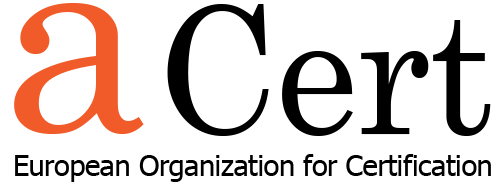how can we help you?
Contact us at the Consulting WP office nearest to you or submit a business inquiry online.
Having values, we offer strictly professional services and through the recognition and reputation of the A CERT, our associated companies and structures and strategic collaborators, we add value to the products, services, institutes and organizations giving them a competitive advantage and making them capable of achieving a dominant position in national and international level.


Lactose Free
Dairy allergies and lactose intolerance are widespread: food manufactures can now certify their products
Certification of an environmental management system is the official recognition of its actual implementation and is considered to be a factual proof and commitment of a company against the protection of the environment and sustainable management.
Certification Application
Download the application for an offer and having filled in, then you may send it either by FAX or e-mail to the Organization.
ISO 9001
| No. | Document Title | Version |
| 1. | QUALITY MANAGEMENT SYSTEM APPLICATION FORM | 09/310709 |
Safety net & build wealth
You can transform your business to a revenue-producing asset that lets you work as much or as little as you want.
Business planning & strategy
Our clients are often surprised by the possibilities we present to them; by thinking outside the box we present exciting new ventures:
- Work fewer hours — and make more money
- Attract and retain quality, high-paying customers
- Manage your time so you’ll get more done in less time
- Hone sharp leadership skills to manage your team
- Cut expenses without sacrificing quality
- Automate your business, so you can leave for days,
Research beyond the business plan
The requirements for a quality system have been standardized – but many organizations like to consider themselves as unique. So how does ISO 9001:2008 allow the multiformity, on the one hand for a sole trader, and for a multinational manufacturing company with service components, or a public utility, or a government administration on the other hand?
The answer is that ISO 9001:2008 lays down the requirements a quality system must meet, but does not indicate how they should be met in a particular organization. This leaves great scope and flexibility for implementation in different business sectors and business cultures, as well as in different national cultures.
- The standard requires the organization itself to audit its QMS according to ISO 9001:2008 – in order to verify that it is managing its processes effectively – or, in other words, to check that it is fully in control of its activities.
- In addition, the organization may invite its clients to audit the quality system in order to give them confidence that the organization is capable of delivering products or services that will meet their requirements.
- Lastly, the organization may engage the services of an independent quality system certification body to obtain an ISO 9001:2008 certificate of conformity. This last option has been proved extremely popular in the market due to the perceived credibility of an independent assessment.
The organization may thus avoid multiple audits by its clients, or reduce the frequency or duration of client audits. The certificate can also serve as a business reference between the organization and potential clients, especially when supplier and client are new to each other, or far removed geographically, as in an export context.
ISO 9001:2008 introduces no new requirements. ISO 9001:2008 introduces just clarifications for the existing requirements of ISO 9001:2000 based on eight years of experience of implementing the standard world wide with about one million certificates issued in 170 countries up to date.
It also introduces changes intended to improve consistency with ISO14001:2004.
As the name “International Organization for Standardization” would have different acronyms in different languages (“IOS” in English, “OIN” in French for Organisation internationale de normalisation), its founders decided to give it also a short, all-purpose name.
They chose “ISO”, derived from the Greek isos, meaning “equal”.
Whatever the country, whatever the language, the short form of the organization’s name is always ISO.
Business plan market
A strong business plan requires going beyond intuition and experience, and supporting your idea with fact-based market research. Investors need to have confidence in your understanding of the market, so don’t let yourself down by skimping on research. We have access to fee-based, subscriber-only resources such as:
- Don James/Semplice – Article and News Research
- VoltageBusiness – Company and Industry Research
- Goovers – Company and Industry Research
- IRISpace – Article and News Research
- Lexos-Nexos – Company, Industry, Market Research
- Plombett – Article and News Research
- Pronounce – Market Analysis report “Slices”
